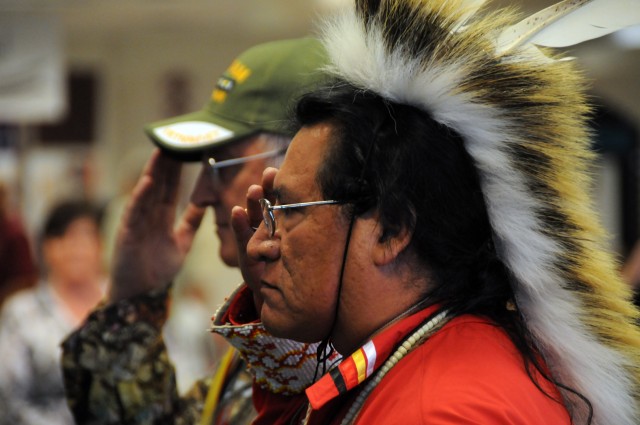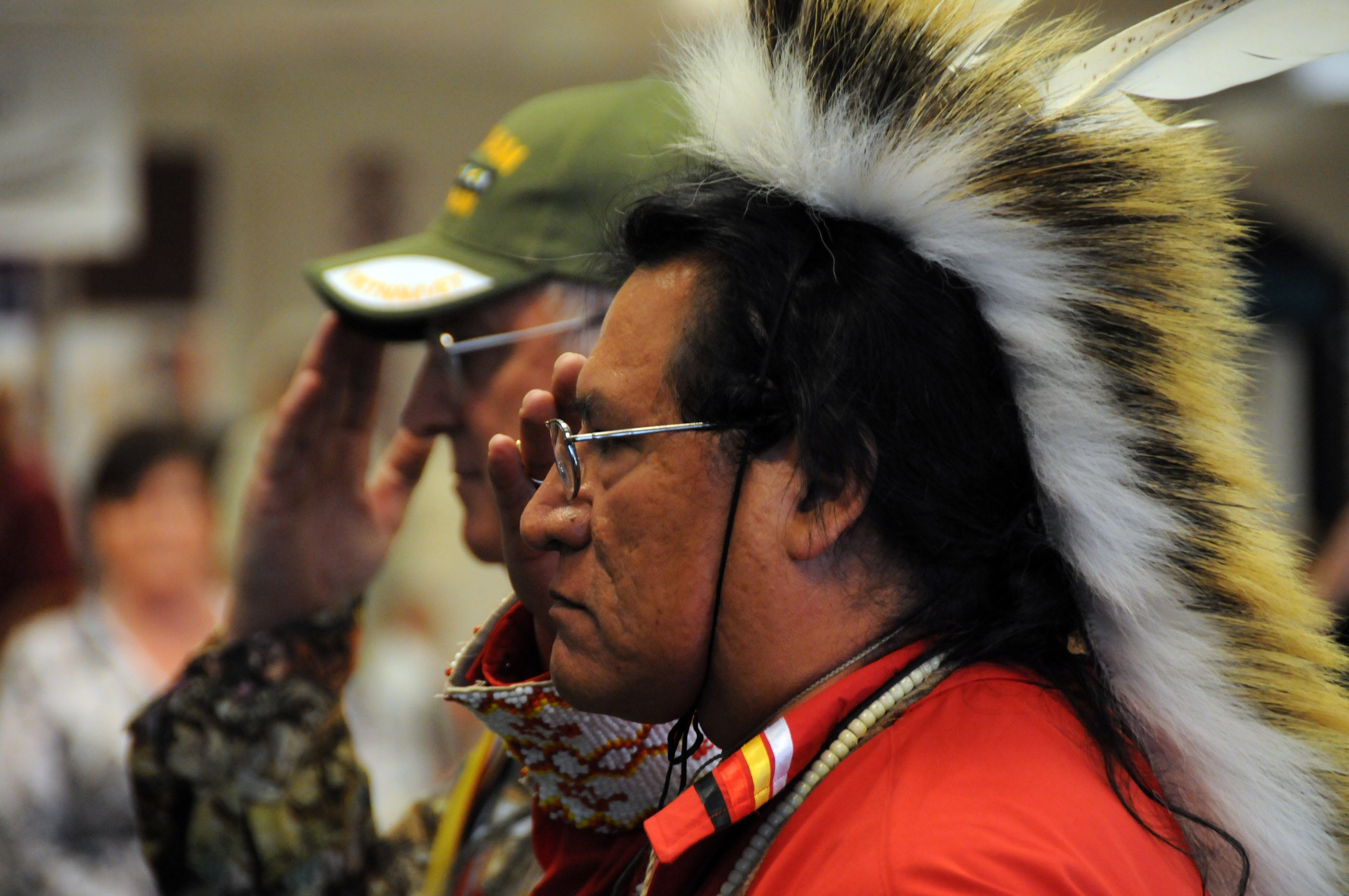FORT RUCKER, Ala. -- "Be true at heart, keep mother Earth clean, be good to one another."
Words to live by, according to the Spirit Warrior.
Arturo "Spirit Warrior" Adrian, of the Kiowa tribe, and other Native American leaders visited Fort Rucker Oct. 29-30 to share their culture and celebrate their history as part of the installation's Native American Heritage Month celebration, said Sgt. 1st Class David Kintz, garrison Equal Opportunity adviser.
While the month officially runs Nov. 1-30, Kintz said officials wanted to get an early start because of scheduling conflicts and also because the festivities at the post exchange would enhance retiree appreciation day that was happening at the same time.
"For all of our observances, we encourage Soldiers at Fort Rucker to get involved and come out and find out about someone else's culture," Kintz said. "That is the key of why we do these events. There is value in everybody coming out and learning about an ethnicity other than their own. That really goes along with the Army's diversity - understanding our different cultural backgrounds and sociological backgrounds - that everybody is not all the same in Army."
Normally, rather than hosting an event on post, Fort Rucker participates in the annual Honor Our Armed Forces Native American PowWow in Daleville, but this year there was a push to host an event on post, Kintz said.
The fourth annual PowWow is Nov. 12-14 in the field adjacent to Culpepper Park in Daleville. Gates open at 9 a.m.
The push came courtesy of Susie Antonello, visual merchandise manager for the Army and Air Force Exchange Service here, who enlisted help from local Native American leaders she met at Bama Jam to help get the event off the ground.
"AAFES wants to provide support to the community and one way to do that is these diverse events," she said. "We're excited about this - it was a really good turnout. We wanted to keep it low key this year, learn from it, and then do better next year. This was very moving, touching - we're honored to have our Native American partners here."
Even though the event was festive and entertaining, it was also educational with organizers having definite messages to impart on the attendees and passersby, said Richard Greybull, of the Dakota tribe, one of the event organizers, and also an Army retiree and school science teacher.
"The tribe representatives talk about their individual tribe's traditions, history and culture," he said. "Many people try to tie all Native Americans into one stereotype - that simply is not true. We all have different customs, traditions and dance styles.
"I hope the people who attended understand that Native Americans are still here - we have not gone extinct," Greybull added. "We live in the local area, we serve in the military, our families serve in the military, we're business owners - we're part of the American public."
For more on Native American Heritage month, call Kintz at 255-3750. For information about Native Americans in the Army, point your Web browser to www.army.mil/americanindians/index.html.
(Editor's note: Jay Mann, public affairs, contributed to this story)
Related Links:
American Indians in the U.S. Army
STAND-TO!: National American Indian and Alaska Native Heritage Month


Social Sharing